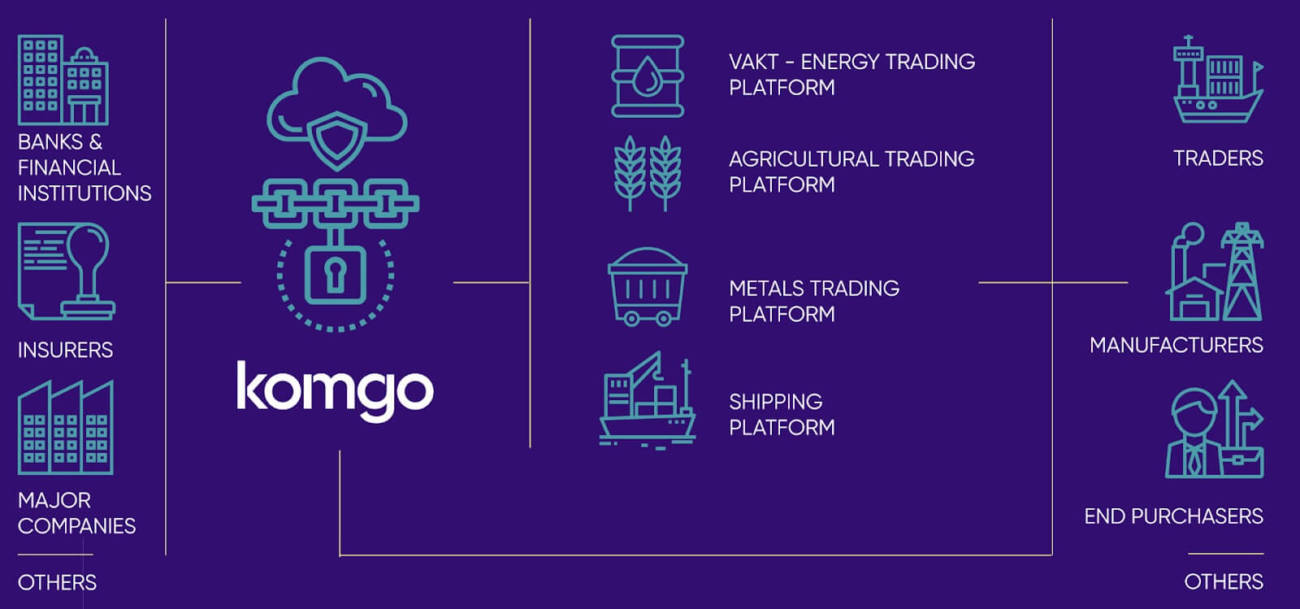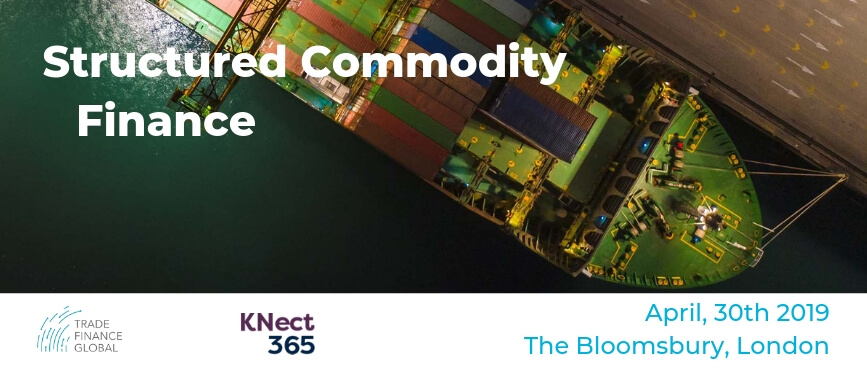komgo was established in the latter part of 2018. Having acquired 15 highly reputable shareholders, it had a headstart in terms of automating global commodity trades. But what is komgo? Here, we look at its brief history, what it does, and its future potential.
On 21 August 2018, komgo was incorporated with 15 shareholders. Ordinarily, that would have been no major talking point; companies around the world are incorporated every day. However, what helped cause more of a splash in the news, were the names of those shareholders. There were financing institutions, such as ABN-AMRO, BNP Paribas and ING, independent traders, Koch Industries and the Mercuria Energy Group, and energy majors, Royal Dutch Shell.
Clearly there were some major players involved from the outset which gave komgo some credence before it had even properly started. Just three months later, in December 2018, komgo had gone live and began automating global commodity trades. All of which begs the question: what is komgo?
Put simply, komgo is the first blockchain/DLT-based platform for the financial trade of commodities. Based in Switzerland, this relatively new venture says its mission is “To catalyse the commodity trade network by providing a fully decentralised, interoperable blockchain solution to act as a data exchange for the industry.” So, what does this mean?
To catalyse the commodity trade network by providing a fully decentralised, interoperable blockchain solution to act as a data exchange for the industry.
Blockchain – All you need to know
We have all heard of bitcoin and other cryptocurrencies, so it is likely you will have come across the term blockchain before. However, blockchain is a complex subject, so it is perhaps worth explaining a little more about what it is. In lay terms, blockchain can be thought of as a chain of blocks, where blocks relate to digital information, and chain relates to the database in which this information is stored.
Blocks can store information about transactions that are unique to each transaction, meaning that each block can be distinguished from another. Since its inception, blockchain is enabling banks, traders and other stakeholders to participate in transactions through the same secure software, thereby simplifying operations and communications for all of those involved.
The ease of use – coupled with the security – is revolutionising the way people and institutions are conducting business, so komgo has decided to muscle in and try and stake their own pitch within trade finance.
Komgo versus we.trade, Marco Polo and Voltron
It is worth noting here that komgo is not the first player on the scene, so it is reasonable to wonder why a specialist commodities blockchain is needed when there are already several on the market, such as we.trade, Marco Polo and Voltron. The answer lies in the subtle difference between vanilla trade finance and structured commodity finance.
For one thing, using a Letter of Credit that has been drafted for one industry, and applying it to another industry can be too risky. For instance, companies in the energy sector are adamant that a Letter of Indemnity is required when the buyer or carrier cannot produce a Bill of Lading. The fact that komgo is providing standardisation within the commodity industry makes it an appealing solution to those in favour of simplifying processes and streamlining costs.
As komgo put it: “Today’s process is unreliable and unprepared for the future. Blockchain technology enables our industry to create a decentralised, open-source, secure commodity trade network.”
In catalysing the world’s commodity trade network, komgo has identified three main tenets on which their business is established.
-
- The komgo network offers simplicity by allowing all stakeholders to transact off the same secure software. Ultimately, this enables them to usher in a new era of simplification
- They strive for efficiency and aim to achieve this by providing a decentralised solution to information sharing. Both the documentation and data are shared directly between the transacting stakeholders
- Security. In its own words, “komgo’s blockchain-based software ensures that data cannot be tampered with, manipulated, or misplaced.” In addition, only chosen participants can view the details of the transactions
Now that the business is well on its way to becoming a major player in the specialist commodities blockchain space, the main question is what next for komgo? There has been talk of komgo expanding into other commodity sectors once it has mastered the energy sector. The fact it is based in Geneva has intrinsic benefits which can only aid its development; between 40% and 60% of the world’s trade finance activity takes place in Switzerland, and there are also corporate tax advantages.
Based in Switzerland, this relatively new venture says its mission is “To catalyse the commodity trade network by providing a fully decentralised, interoperable blockchain solution to act as a data exchange for the industry.”
Komgo are speaking at the ‘Structured Commodity Finance’ event on April 30th 2019. Get an exclusive 20% discount, and find out more about the event here.
























